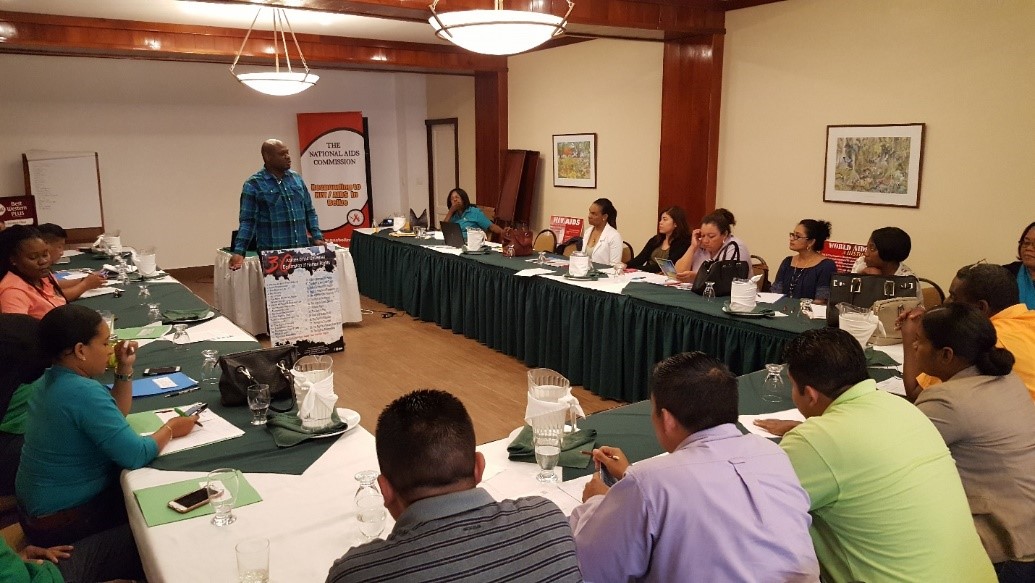
NAC (Belize) collaborates with Ministry of Labour for HIV educationThe two-day workshop focused on HIV prevention and the effects of HIV-related workplace stigma and discrimination.
In an effort to increase awareness of HIV and AIDS, The National AIDS Commission (Belize) collaborated with the Ministry of Labour to provide a two-day workshop to key Labour Officers at the Best Western Biltmore on 15-16 March 2018. The training explored a variety of topics pertinent to HIV prevention and the effects of HIV-related workplace stigma and discrimination.

A total of 22 key Labour Department managers and administrators were present at the two-day workshop. Facilitators of the HIV training included Mr. Arthur Usher, Communication Officer of the National AIDS Commission, Mr. Keron Cacho, Programme Coordinator of the National AIDS Commission, Mr. Antonio Coyoc and Jevan Chavarria of Ministry of Health, Mrs. Eva Burgos of Go Belize, Ms. Derricia Salazar of Our Circle and Ms Dominique Noralez from The National Youth Council of Belize.
Facilitators presented on Belize’s HIV Statistics, the Belize Health and Information System, the concerns and issues surrounding Key Affected Populations in Belize and addressed the many ways in which the Ministry of Labour can assist in alleviating stigma and discrimination.

Facilitators also informed participants of Belize’s commitments to various international Human Rights and HIV service provision targets.
The NAC continues to maintain a dynamic and multi-sectoral approach to the HIV response in Belize.
WHAT IS PANCAP?
PANCAP is a Caribbean regional partnership of governments, regional civil society organisations, regional institutions and organisations, bilateral and multilateral agencies and contributing donor partners established on 14 February 2001. PANCAP provides a structured and unified approach to the Caribbean’s response to the HIV epidemic, and coordinates the response through the Caribbean Regional Strategic Framework on HIV and AIDS to maximise efficient use of resources and increase impact, mobilise resources and build the capacity of partners.
What are the Global AIDS Strategy 2021–2026 targets and commitments?
If targets and commitments in the strategy are achieved:
- The number of people who newly acquire HIV will decrease from 1.7 million in 2019 to less than 370 000 by 2025
- The number of people dying from AIDS-related illnesses will decrease from 690 000 in 2019 to less than 250 000 in 2025.
- The goal of eliminating new HIV infections among children will see the number of new HIV infections drop from 150,000 in 2019 to less than 22,000 in 2025.
What are the 95-95-95 Targets for ending AIDS?
- 95% of People Living with HIV know their HIV status;
- 95% of people who know their status on treatment; and
- 95% of people on treatment with suppressed viral loads.
HELPFUL LINKS:
Global AIDS Strategy 2021–2026, End Inequalities, End AIDS
https://pancap.org/pancap-documents/global-aids-strategy-2021-2026-end-inequalities-end-aids/
Caribbean Regional Strategic Framework on HIV and AIDS (CRSF) 2019-2025
https://pancap.org/pancap-documents/caribbean-regional-strategic-framework-2019-2025/
